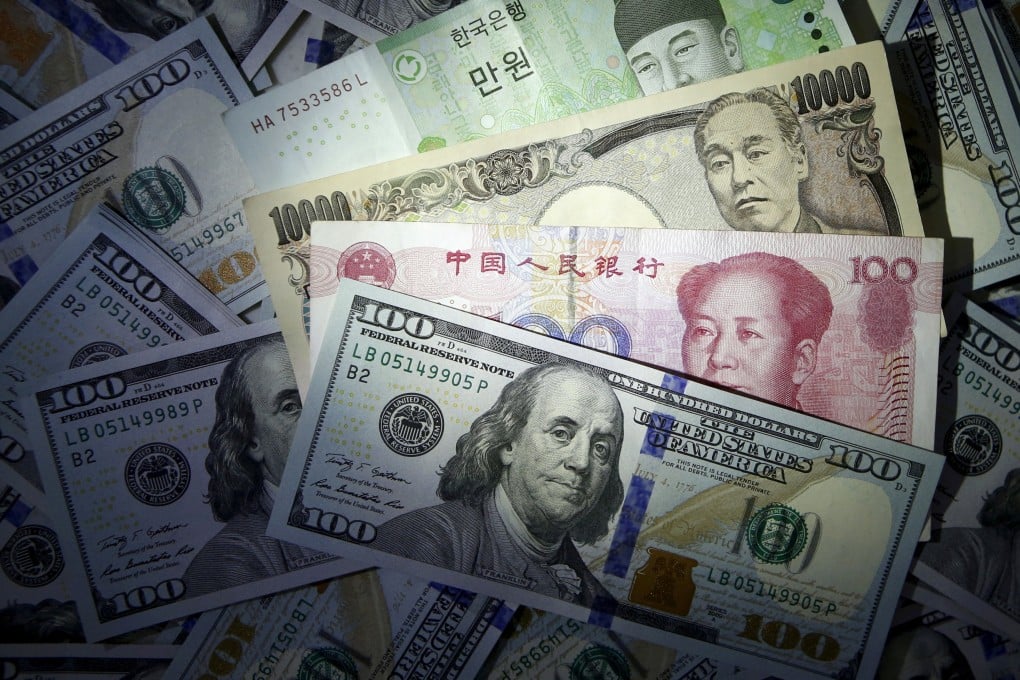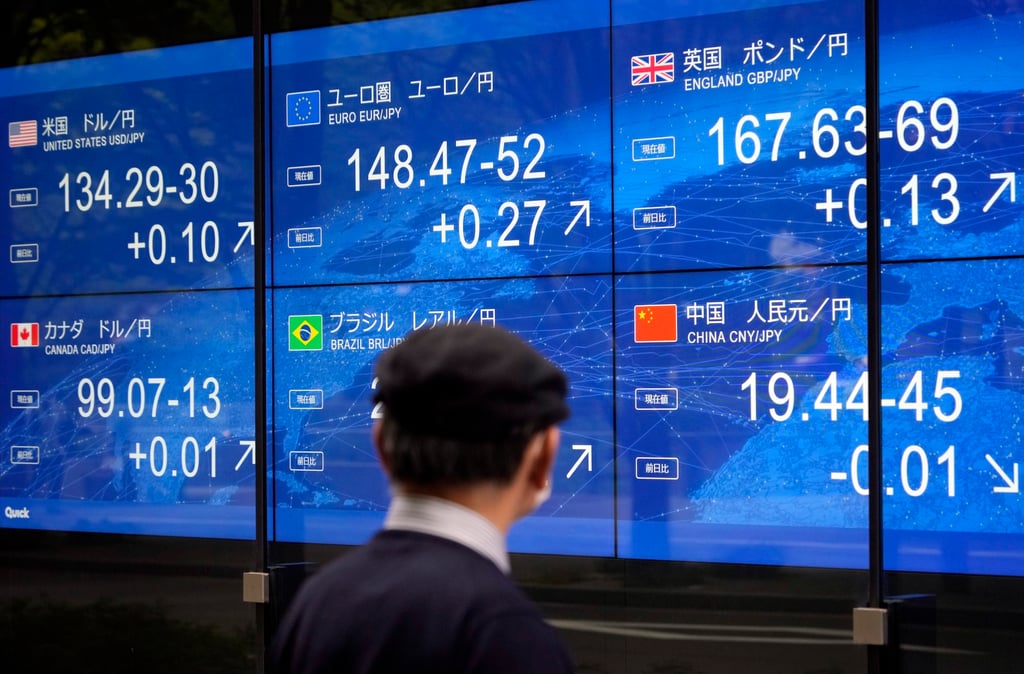Advertisement
Macroscope | Will the dollar be dethroned by the yuan? Not in the near term
- Recent events suggest several major developing economies are eager to move away from the US dollar, but evidence of a widespread shift is lacking
- If the US dollar is going to be dethroned, it will be because America falls behind in economic heft and competitiveness, not by geopolitical manoeuvring
Reading Time:3 minutes
Why you can trust SCMP
18

The strength of the US dollar has been a key theme in global markets since the US Federal Reserve began raising interest rates last year. Despite the Fed’s conditional interest rate pause in May and possible cuts later this year, the dollar remains expensive, especially when compared to the yuan, which recently moved past the psychologically significant exchange rate of seven to one US dollar.
This could partially explain the notably vocal debate by economists and market participants on “de-dollarisation”, the gradual unwinding of US dollar dominance in global trade and finance and the move towards a broader diversity of currencies. Past iterations of this debate focused on the Japanese yen and the euro, but now the yuan is the clear challenger.
Past challengers to global dollar dominance are worthy of analysis since neither the yen nor the euro managed to dethrone the US dollar, primarily because of the US outcompeting both economies from a macro perspective.
Advertisement
Japan’s economy seemed unstoppable in the 1980s. The country had rapidly closed its technology and productivity gap with the US, becoming the world’s second-largest economy. However, it never fully recovered from the bubble economy popping in 1991 as Japan’s population was ageing and shrinking.
Deflation set in, and the Bank of Japan set out on a course of ultra-loose monetary policy, including market intervention and rock-bottom long-term rates. Japan’s weight in global economic and financial activity faded rapidly, with its markets becoming increasingly localised and central bank-dominated.

The euro zone stands in contrast to Japan as its currency’s appeal relied on geopolitics as well as macroeconomic and financial heft. The launch of the euro in 1999 brought more than the harmonisation of a western European economic bloc already larger in population than the US and competitive in terms of gross domestic product, productivity and technology.
Advertisement
Select Voice
Select Speed
1.00x
